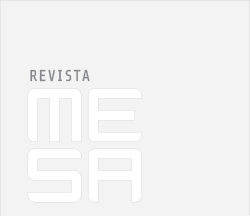
The Poetics of Rescue
Cristiana Seixas
It’s in the lowly that I see exuberance.
Manoel de Barros1
There is a deep and plural field of the collective unconscious reached only by some beings, such as poets, children, madmen, visionaries, artists, among other rare individuals. Here, the inverse to what usually happens occurs: the visitor does not capture, but rather he or she is captured, touched by other dimensions. Access to this mysterious source overflows personal boundaries and seems to connect larger, cosmic laws. In this field, ancestral memories come alive, essential values for the sustaining of sacred links. Literary resonances of the phenomenon might include, for example, when Sophia de Mello Breyner Andresen writes:²
“I Listen”
I listen but I don’t know
If what I hear is silence or god
I listen without knowing if I’m hearing
The resounding plains of emptiness
Or mindful awareness
That in the confines of the universe
Deciphers and binds me
I just know that I walk as someone
That is looked on with love and is known
And that is why in every gesture I put
Solemnity and risk.

Consciousness, in the confines of the universe, observes. It knows that it needs to be attentive and available to suspect the forces around us. Sophia reveals that it is difficult, perhaps impossible, to distinguish whether the poem is made by her, in sleepwalking arena of the self, or if she is only an instrument for it to manifest itself. The writer intuits this condition of access: “I know that the birth of the poem is only possible from that way of being, [a form of] being and living that renders me sensible – like a film negative or a movie – to the being and the appearance of things”³. Art is a circle drawn around something that, with the amplification of attention or the transgression of the gaze, reinvents itself.
In this sense, another example is the artist Vidi Descaves, author of Tastequiet, a book with 366 illustrations, created daily over a period of one year.4 During the work, he felt the need to be more attentive to his surroundings in order to produce interesting visual narratives. When he speaks about the creative process, he describes that he found it to be a small fragment of a whole. He realized that we all need to be humble and to listen more and that a person’s ideas are not original, but rather circulate in the collective. Channels influencing channels, continuously.
“Things no longer want to be seen by reasonable people,” affirms the poet Manoel de Barros.
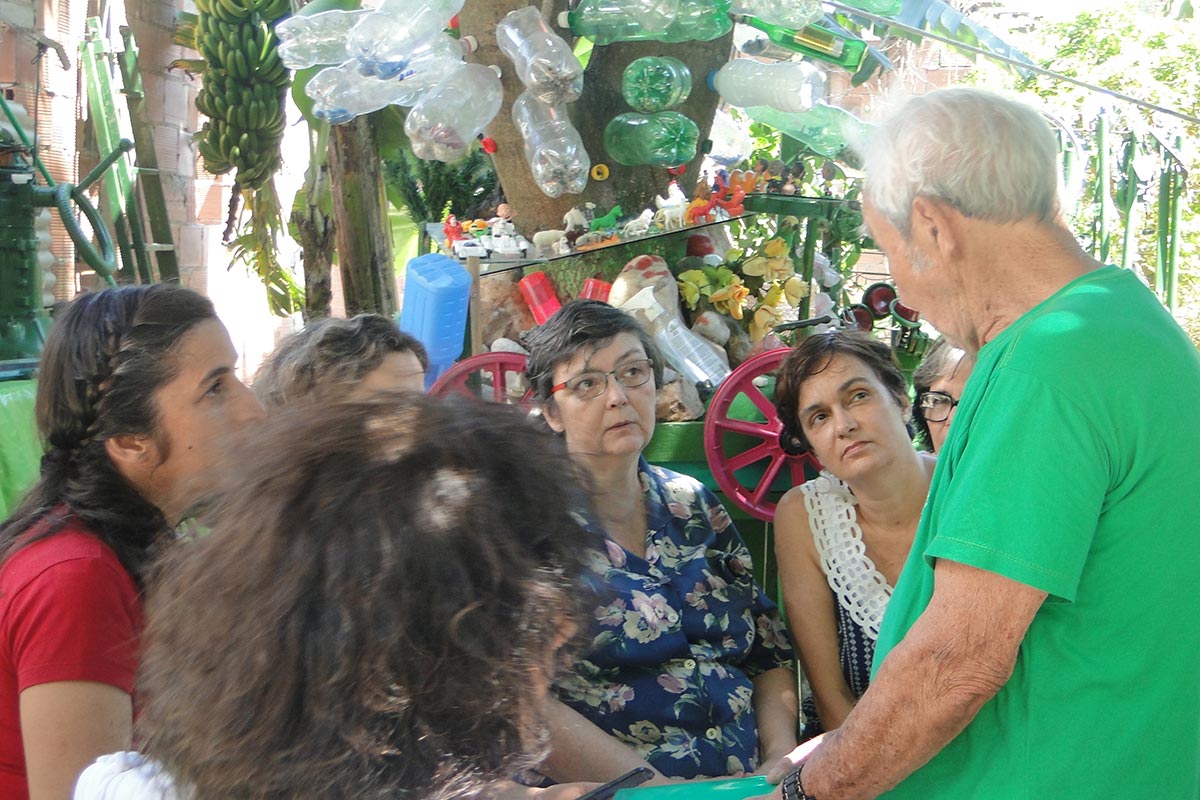
Ever since my first visit to Casa Museu Rancho Verde [Green Ranch House Museum] I have found myself in a state of wonder. Words are insufficient to describe the emotions and meanings the space evokes. It is a reliquary of the collective unconscious, a space for accessing long-lived affective memories, for observing the many discarded histories throughout existence (significant and not) including our own stories. The “Rancho” is another kind of space. Here we move away from the grind of everyday life and come into contact with a man, who has gone through much strife, whether from the loss of his life partner, the struggles he has faced since he was a boy or the impact of surrounding helplessness. For this human being is unusual: he sees treasures in the middle of the garbage. As a genuine gold digger, he rescues objects, gives them back dignity and respect, and recovers them. Thus, in a kind of mirroring, he feels equally looked at, chosen, rescued, cared for, transformed, regenerated. He not only cleans and repairs, but transposes their usefulness: transforms cans into mugs, the lid of a water tank into a parasol, a backrest from a bed into a kitchen utensil holder, a refrigerator into a closet, among many other paths of reinterpretations in arid hinterland of reality.

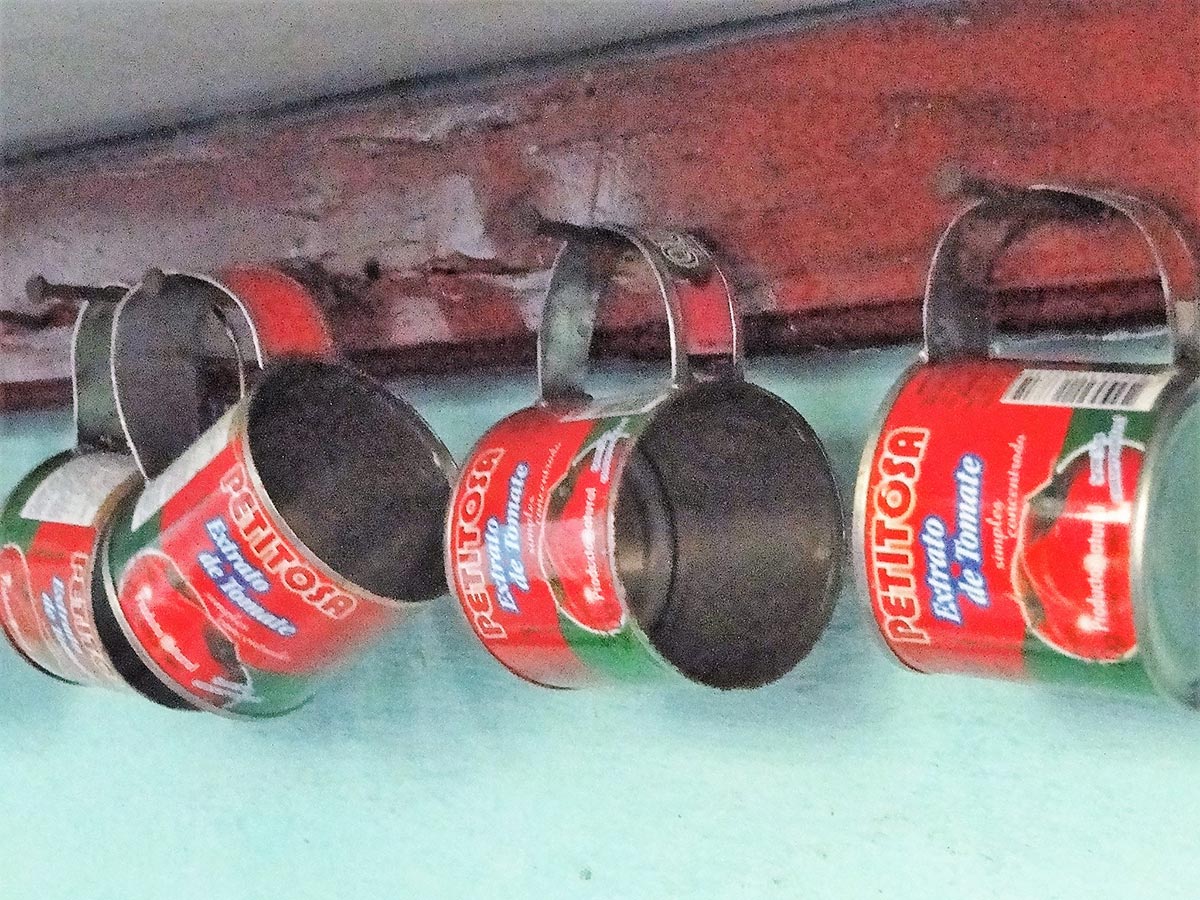
Heir to orality, he generously shares sublime wisdoms: “we are lights, when we are enlightened”. On the day I visited the Casa Museu Rancho Verde and heard Seu Hernandes speak, I was overflowing with affection and wonder. I came back at other times, both alone and accompanied, for proposed encounters or simply without commitment, to make room to live and learn another logic of reading and inhabiting the world. This brought us closer and a thread of trust sprang up between us woven from the words of poets that, here and there, I recited in reverberation to what I saw and felt for their prophetic poetry. Seu Hernandes then entrusted me with his writings, a true treasure that I accepted as one who receives a sacred blood parchment, in the courage and helplessness of a child in eternal search for his dreams. In the readings and re-readings, the correlations with verses by Manoel de Barros were immediate, impelling me to build a dialogue between the two. “There are real stories that seem more invented”5 wrote Manoel de Barros. It is true. This is one of them and deserves safekeeping. It is what this project does, made up of so many beings and knowledges, sensible and resistant, that continue to support the poetics of pausing the grind of things, of discovering and illuminating what has value.
It is a way to “Keep”, title of poem by Antonio Cícero6:
Keeping something is not in hiding it or locking it up.
Safes are not for keeping things.
Safes keep things out of sight.To keep something is to look at it, to be bound by it, to eye it up to
admire it, that is, enlighten or be enlightened by it.To keep a thing is to protect it, that is, to be a watch guard for
it, that is, to watch over, that is, to be awakened by the thing,
that is, to be around for it or to be for it.So it is better to keep the flight of a bird
Than a bird without flight.That’s why we write, that’s why things are said, that’s why they are published,
that’s why a poem is declared and declaimed:
For safekeeping:
So that, in turn, it safeguards what it keeps:
Keep whatever a poem keeps:
That is the poem’s purpose:
For keeping what you want to keep.
Poetry is a language that comes closest to the space not reached by words, as it is in the field of mystery and the unconscious. Once again Manoel de Barros: “Things that have no name are more [readily] pronounced by children.”7
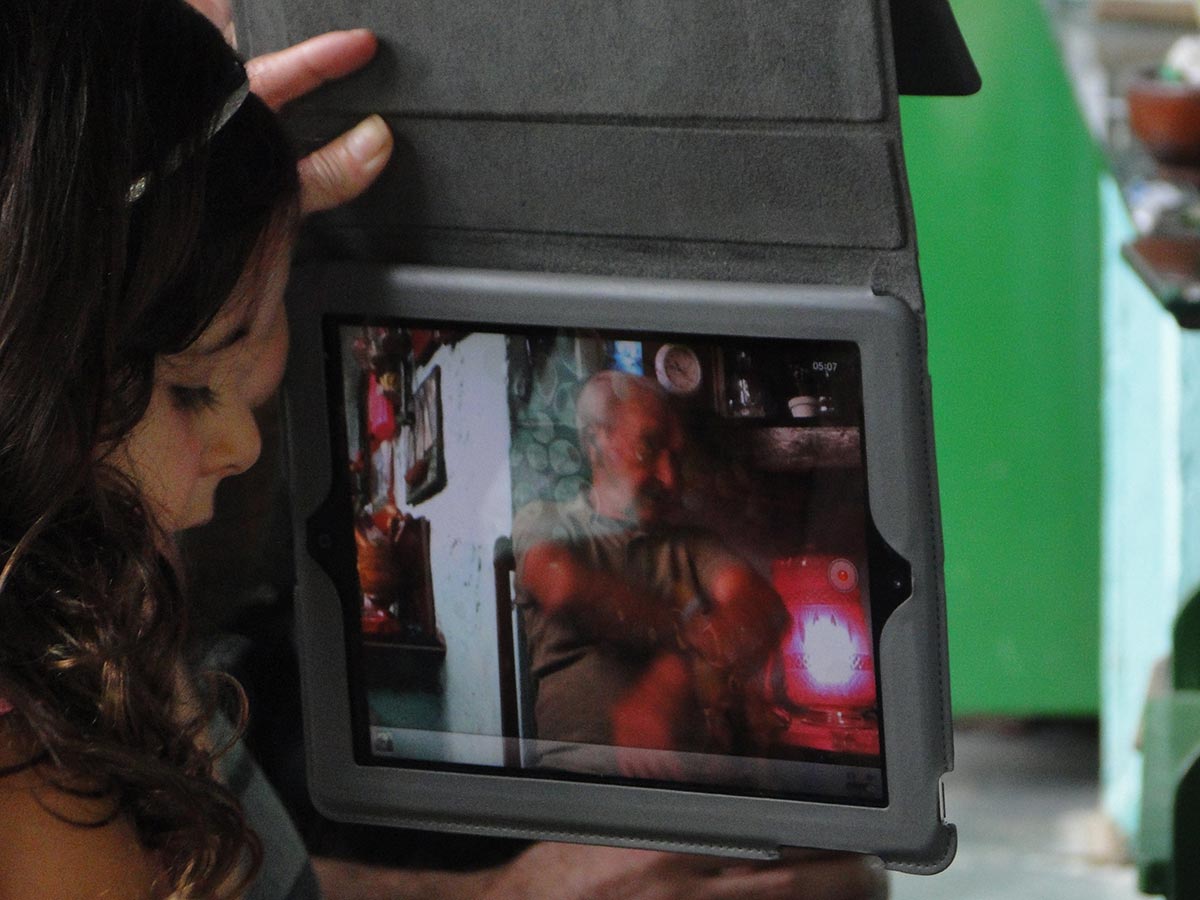

And it is Astrid Cabral8 who lucidly notes that children invent the world and that poets resurrect childhood. How to name and translate the phenomenon that makes so many people orbit around Seu Hernandes, attracted by an invisible thread of enchantments and possibilities for recreation and a practice of recreation? Visiting the Casa Museu provokes a profound reconfiguration of values and possibilities, inviting us to browse slowly, take a deep breath, and to have coffee and cornmeal cake. An oasis in the desert of indifference. The rescue of essential but lost dimensions. The discarded becomes material to be looked at and transmuted. It requires time and a vast repertoire of the imaginary. In addition to participating in some of the many encounters that were promoted at the Casa Museu, and being part of the mosaic of plural aesthetic experiences, I developed a proposal for a workshop that I called “The Poetics of Rescue”, aimed at provoking threads of connection between various literary works and the craft of care at Casa Museu Rancho Verde. Over the course of four hours, the planned idea was to invite participants to move around the space of the Casa, accessing memories and stories, and weaving resonances with excerpts from literature including: Manoel de Barros, Adélia Prado, Lygia Fagundes Teles, and Lygia Bojunga among others. Then, we would excerpt some inspiring verse or phrase and paint it on a discarded piece of wood, renewing it and using it as a vehicle to enliven something essential. We prepared all the details for the workshop, separated the materials, imagined the beauty of the experience, but, for different reasons, it was postponed many times and ended up not happening. It was alive inside out, in intention and desire. However, from this preparatory work, a dialogue between the two luminary poets was born – Manoel de Barros and Hernandes José Silva – that I share here with the joy of child:
Garbage saved me from trauma.
In garbage I found the therapy I needed.
Garbage transformed me
and I transformed garbage
into objects of admiration.
Hernandes José Silva
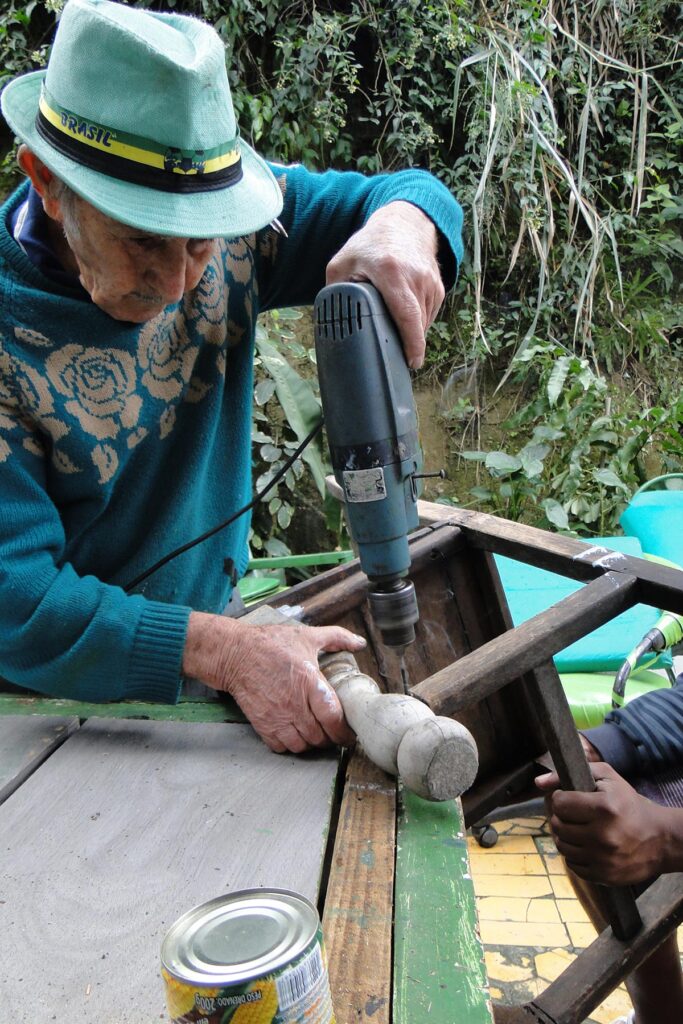
Thrown away things
have great importance
– like a man thrown away
Moreover it is also the object of poetry
to know the average period
that a man thrown away
can remain on earth without roots of refuse
being born in his mouth
Unimportant things are the assets of poetry.
Manoel de Barros9
I appreciate the transformation
that garbage brought to my life.
My life was also recycled.
Rancho Verde was built from recycling.
Hernandes José Silva
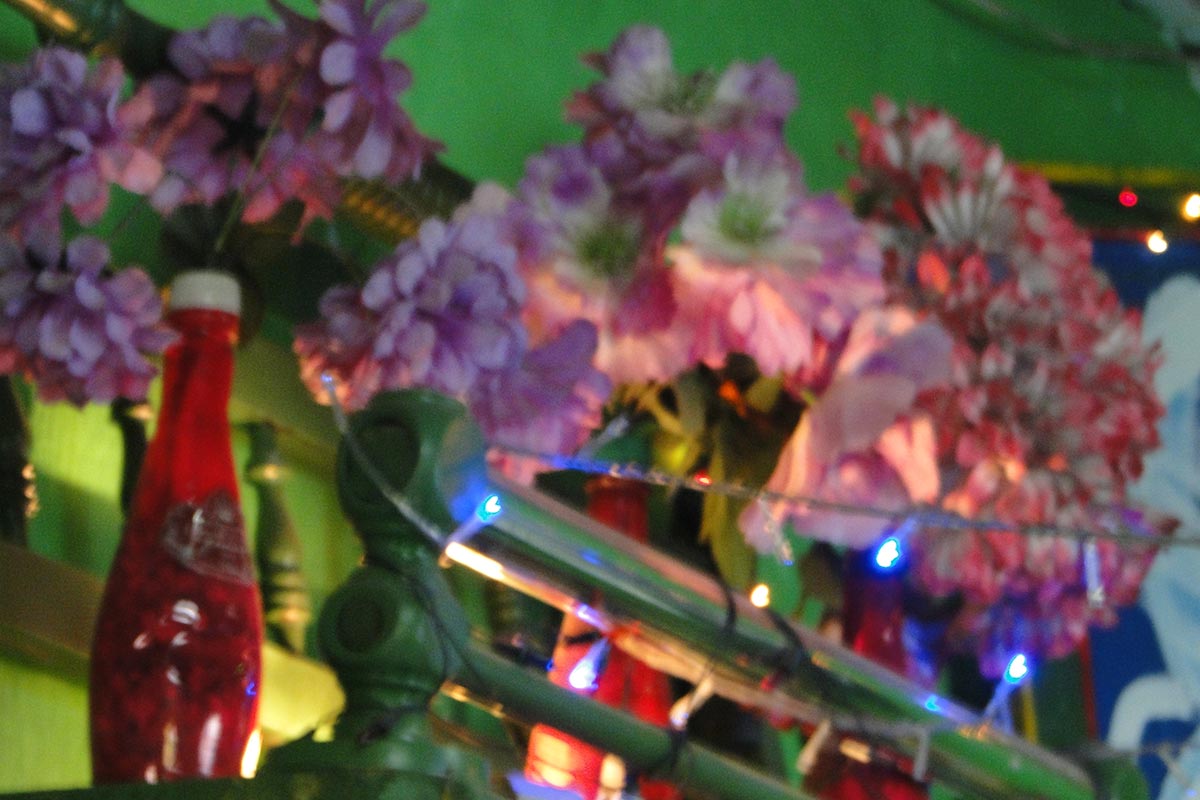
Whoever achieves the value of what no one values is, at least,
a sage or a poet.
Someone who at least knows how to give scintillation to
erased beings.
Manoel de Barros10
In the magic of infinity,
in the green of nature,
a green dream
in the empire of the imagination,
in the world of longing,
in the garbage that is worthless.
All that is old
can be renewed.
But everything that is new,
will one day be old.
Restoration or imagination?
Hernandes José Silva
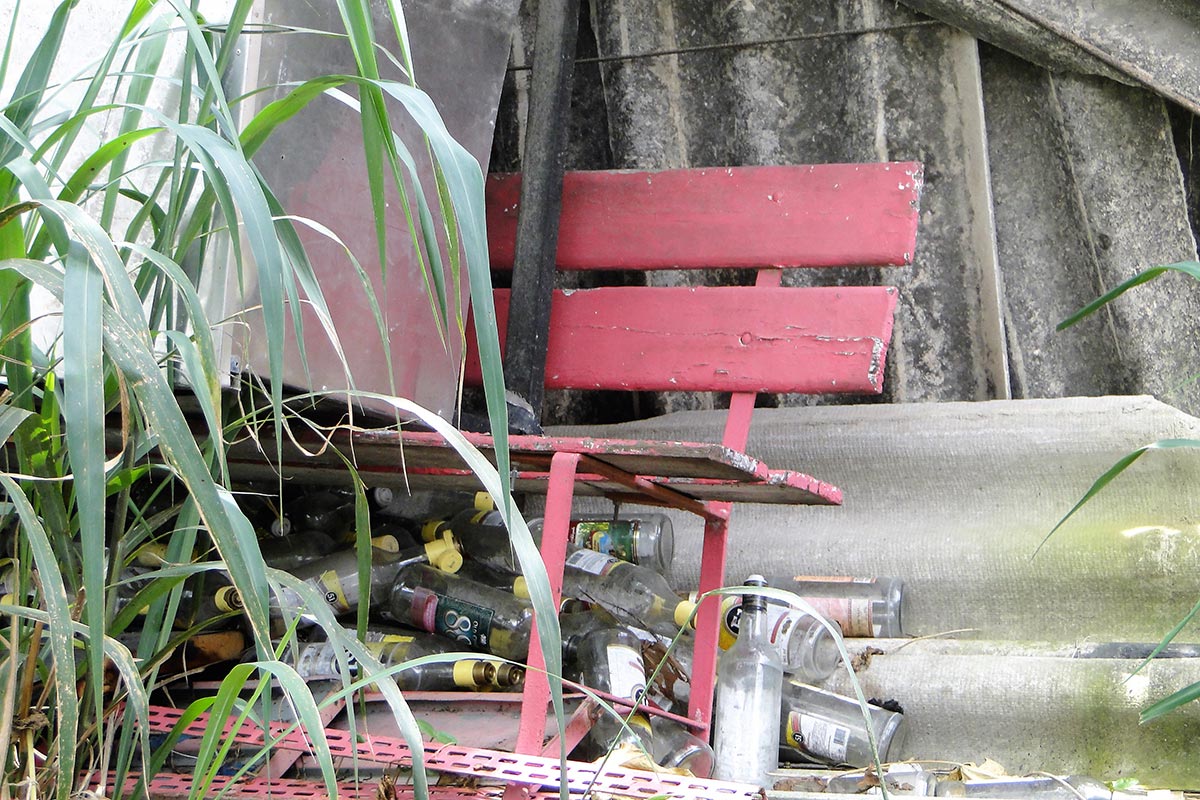
The eye views
remembrance reviews
and the imagination transviews
We need to transview the world.
Manoel de Barros11
I never went to school.
I picked up a newspaper on the street,
asked the letters said.
Over time,
I learned to read,
but I didn’t learn to write.
I always narrated
my stories and poems,
but I didn’t write.
But people wanted
know the stories.
A poem does not let the light go out.
Keeps the light on
of our eternal love.
You are the flower that gave birth anew
to a light in my heart.
Hernandes José Silva
There was a blank silence … And the one
Who has never lived in his own abyss
Nor walked in promiscuity with his ghosts
Was not marked. Will never be marked. Nor ever exposed
To weaknesses, discouragement, love, poetry.
Manoel de Barros
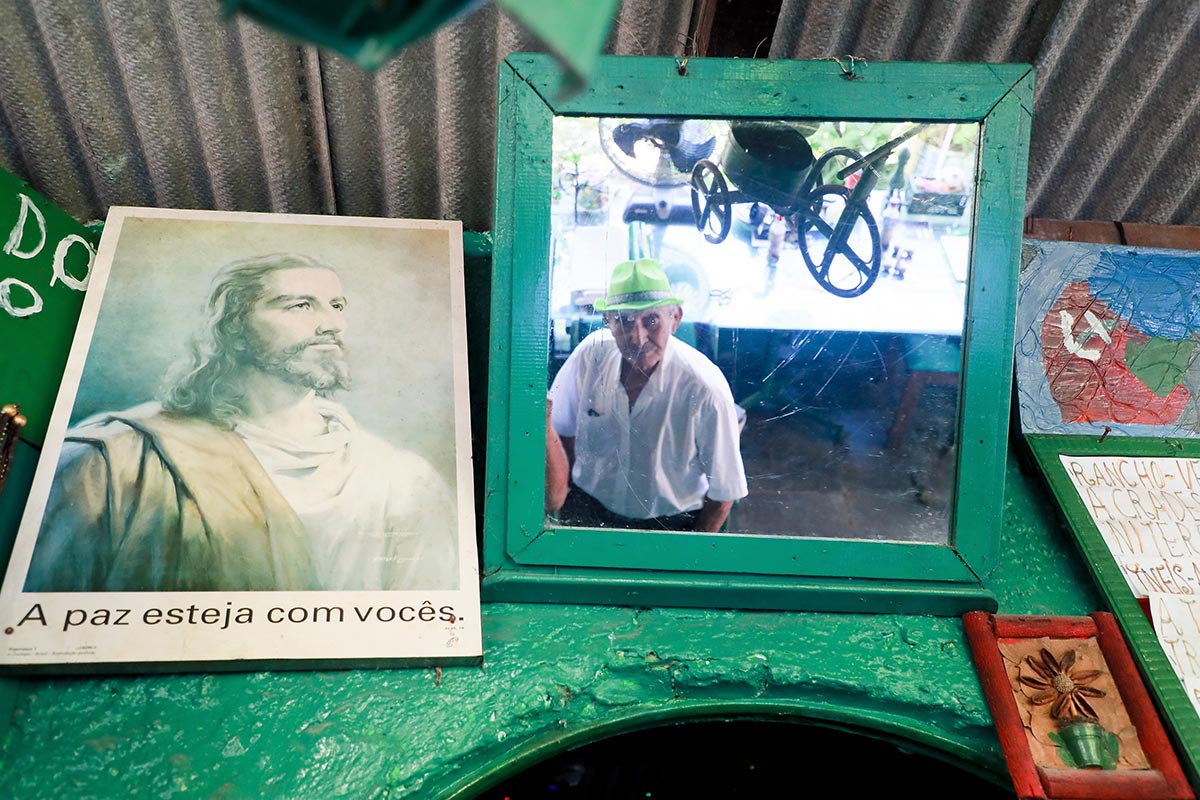
Alone I was in no condition to survive.
Loneliness made me fall asleep
in the deepest dream.
Today I am happy,
but I have an empty heart,
inside it the memory
and the longing of a love
without end.
Hernandes José Silva
I’m weak,
but who’s in me
is very strong.
Hernandes José Silva
***
Cristiana Seixas
Is a psychologist and holds a masters degree in education. She is a library therapist and specialist in art therapy, focusing on circular dances and systemic family constellation therapy. Author of the book Vivências em biblioterapia: práticas do cuidado através da literatura she deploys the sensible for systemic care. For more information visit: www.crisseixas.com.br.
[Translators note: Poetry affirms the impossibility of translation, particularly for the delicate mastery of Manoel de Barros. All of the translations are free translations and all are definitively wanting. Of the poets cited in this brief essay, there is one collection translated, unfortunately not available for this current text but that may perhaps interest English readers: Manoel de Barros, Birds of Demolition, trans. Idra Novey (Pittsburgh; Carnegie Mellon Press, 2010).]
1 Manoel de Barros, “Livro sobre nada” in Biblioteca Manoel de Barros [collection] (São Paulo: LeYa, 2013) p. 36.
2 Sophia de Mello Breyner Andresen, Obra poética (Rio de Janeiro: Brazilian ink, 2018) p. 520.
3 Ibid, p. 901.
4 Vidi Descaves. Tastequiet (Rio de Janeiro: ? 2013).
5 Manoel de Barros, Poesia completa (São Paulo: LeYa, 2010).
6 Antonio Cícero, Poemas escolhidas (Rio de Janeiro: Editora Record, 1996) p. 337.
7 Manoel de Barros “Livro sobre nada”, p. 10.
8 Astrid Cabral, Trasanteontem (Rio de Janeiro: Editora Kd, 2017).
9 Manoel de Barros, Poesia completa (São Paulo: LeYa, 2010) p. 147-148.
10 Ibid, p. 387.
11 Manoel de Barros, “Livro sobre nada”, p. 51.

